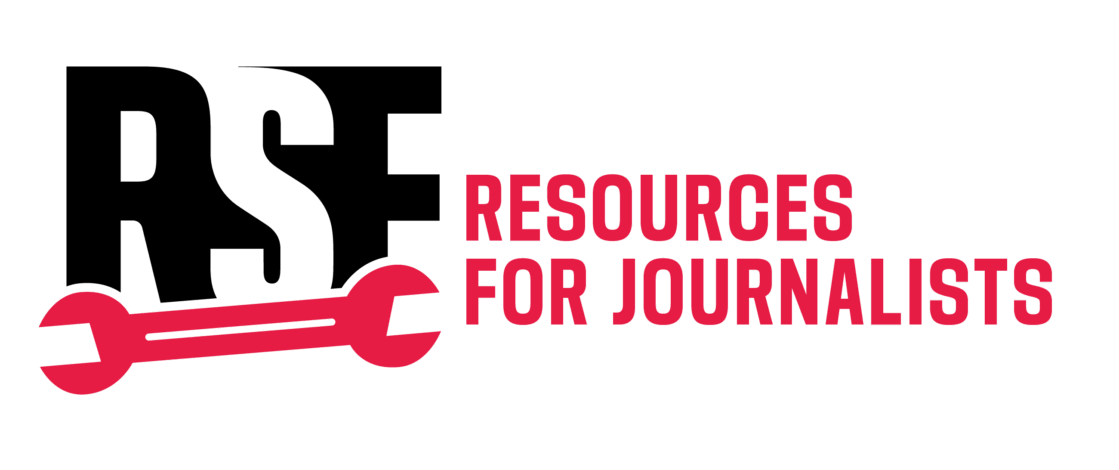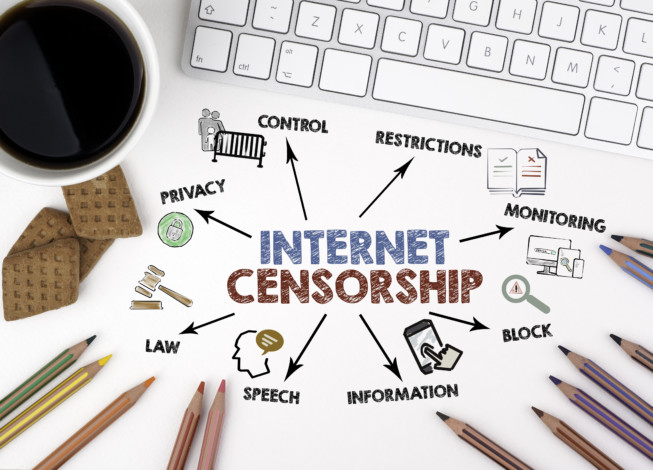Reporters Without Borders (RSF) introduces techniques for journalists to circumvent online censorship in authoritarian regimes, and provides methods to maintain secure communication and access to information.
Authoritarian regimes use internet censorship to block information, communication, and access to vital services. Online censorship is particularly robust during socio-political crises, protests, significant political dates and around national elections.
Access to the open internet is crucial for journalists to report but also protect themselves and their sources, but circumventing online censorship is especially challenging in authoritarian regimes as journalists often face issues connecting with Virtual Private Networks (VPNs). This article presents censorship techniques and methods to circumvent them.
Internet censorship techniques
Authoritarian regimes have developed and implemented censorship methods focused on creating friction, which means making it difficult for the population to access restricted content online; and fear, by threatening punishment for those who do.
- Throttling internet speed to specific sites. It is a discreet but effective method to discourage users from accessing them simply because the content loads too slowly or the website appears as if it had technical issues.
- Geo blocking specific apps and websites within the country. It means blocking their access based on the user’s location. The Ugandan government used this technique during their 2021 election, blocking the Google Play Store and preventing easy downloads of circumvention apps during this period.
- Blocking VPNs. It forces journalists to rely on non-secure communication channels that are easier to monitor.
- Blocking internet services altogether has been used in Tigray and Amhara in Ethiopia, and prevents the access to information and the use of applications circumventing censorship like VPNs or Tor that rely on the internet.
- Threatening imprisonment for accessing restricted content. While impractical to enforce en masse, it does serve to discourage users from seeking circumvention techniques they believe are risky, or even have related apps on their devices.
Workarounds to censorship techniques
Using a trusted VPN and following safety tips and good digital security practices while reporting from authoritarian regimes is essential, but more restrictive censorship may require further tools. Some applications come with censorship circumvention features such as the ability to use domain fronting or a built-in VPN. This is useful if a journalist is caught in an internet censorship event and does not have any tools like Tor or a dedicated VPN already installed.
- Messaging apps: Signal, Telegram and WhatsApp have built-in censorship circumvention. In some countries, journalists may need to manually find a proxy to be able to connect to these apps (explanations for Signal, Whatsapp). In the event of an internet blackout, Briar is an offline communication app that uses bluetooth to allow communication within a local community without internet service.
- Satellite connection and foreign data: another solution when the internet is being censored or shut down in a given place is to use a foreign SIM card and satellite connection, but these solutions are expensive and may not work depending on the level of internet control exerted.
- Browsers: Tor Browser and Brave are open-source projects with built-in censorship circumvention. If the Tor Project website is blocked, there are alternatives to download the Tor Browser that do not rely on the Google Play or Apple Stores. Mozilla Firefox offers a VPN product, but it was not designed to circumvent censorship.
- File sharing systems: OnionShare is an open-source tool journalists can use to share and receive files both anonymously and securely and is a good alternative to less secure Cloud services. It uses the Tor network or alternatively Tor bridges to function.
- App store: F-Droid is an alternative to the Google Play Store for Android devices, which respects users’ privacy and does not track nor collects user data. It does not need an account to be used.
→ To know more about internet censorship:
• #KeepItOn Coalition – Access Now
• “Censored: Distraction and Diversion Inside China’s Great Firewall” – Margaret E. Roberts
This article is part of a series on censorship circumvention:
• Internet censorship 101 for journalists in authoritarian regimes
• Collateral Freedom, a solution for media outlets to bypass censorship
• OONI, a tool to check whether an online service is being blocked
• Downloading Tor Browser despite censorship



